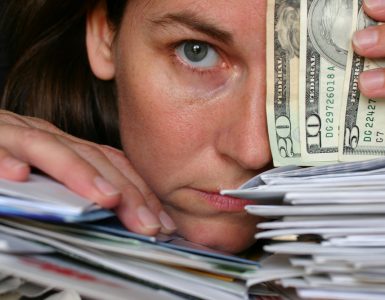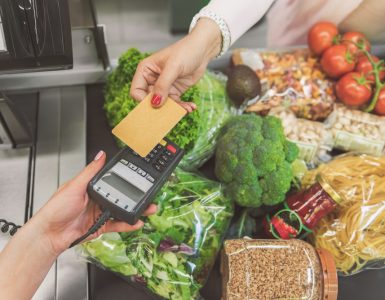If you need help right away, this relief program will direct deposit a short term loan into your bank account. Review the terms of this funding closely before accepting these funds.
Is one bank account enough? Are two too many? Such questions may have popped into your head as you thought about where to stash your cash. To help you figure out what’s best for you, we’ll look at ways multiple bank accounts can benefit you.
Basic Bank Accounts Everyone Should Have
Before we jump into the benefits of having various bank accounts, let’s start with the basics.
Ideally, you should have at least two bank accounts. One should be a checking account, while the other should be a savings account. Here’s how each can help you:
Checking Account
- Functions as your primary account for money transactions.
- It can hold money for monthly bills and other spending
Savings Account
- Holds money for emergencies like job or income loss, accidents, medical issues, car repairs, etc.
- Money in savings should be left alone and reserved for a rainy day.
While a checking account has its definite purpose in day-to-day life, a savings account is equally important. Even if you’re barely getting by and living paycheck to paycheck, stashing money in a savings account is a necessity. Without it, you could find yourself in trouble if disaster strikes.
Although just one savings account will do, you may want to have others as well. For instance, if you plan on buying a house in five years, you could keep one savings account for that purpose. Another savings account could be used to hold money for an upcoming car you’d like to buy. You could even have a savings account strictly for funds related to future vacations. It’s up to you.
Before you open several savings accounts, make sure you’ll be using them regularly. If not, small balances could lead to maintenance fees that make them more trouble than they’re worth.
![]()
Stop! If you need financial assistance such as money to pay bills, a personal loan, or debt relief. See what resources are available to help you today.
The Importance of Using Multiple Banks
You could enjoy the convenience and customer service benefits of having all of your accounts with one bank. An issue arises, however, if your account gets hacked and you have trouble accessing your money.
To avoid this, try spreading your money around to multiple banks. Besides alleviating risk, it can help you see which banks are most beneficial in terms of service and other features.
What to Look for When Choosing a Bank
Each bank may differ in terms of what they have to offer. When comparing banks and especially savings accounts, keep an eye on these defining characteristics to get the most bang for your deposited buck:
- Fees – Monthly maintenance fees should ideally be free or as low as possible.
- Interest rate – The higher the interest rate, the quicker you’ll reach your savings goal by making your money grow. Most savings accounts offer just under 1% interest, while some may go up to 2%.
- ATMs – You want them to be widespread so you can access your cash when necessary. Free or low withdrawal fees are a must too.
- Minimum balance – If you have little cash to deposit, an account that requires a high minimum deposit or monthly minimum balance may not be a good fit.
- Online transfers – Some accounts are more flexible than others when it comes to moving your money around.
The Ideal Number of Bank Accounts
Is there a perfect number of bank accounts that you should have? The answer is no, as everyone’s situation is different.
Two is the minimum, but if you have several savings goals, your number of accounts may extend way past that point. As long as you make the most out of each account and don’t let maintenance fees overwhelm you, have as many accounts as you wish.










